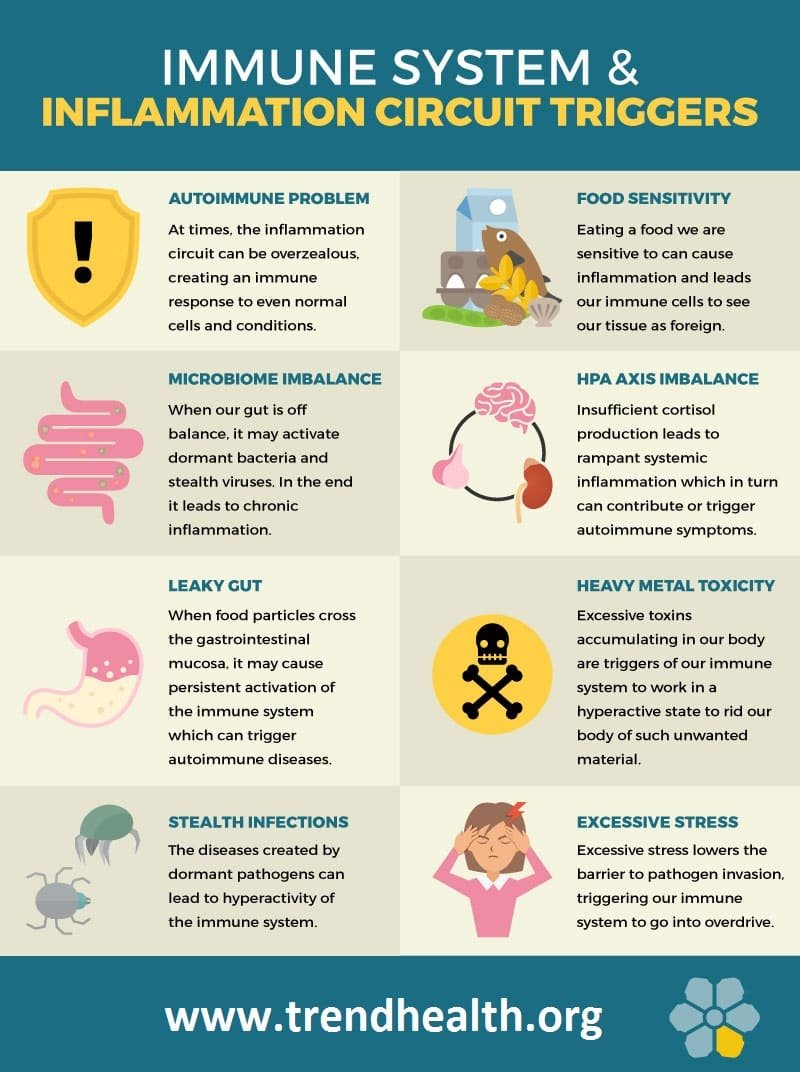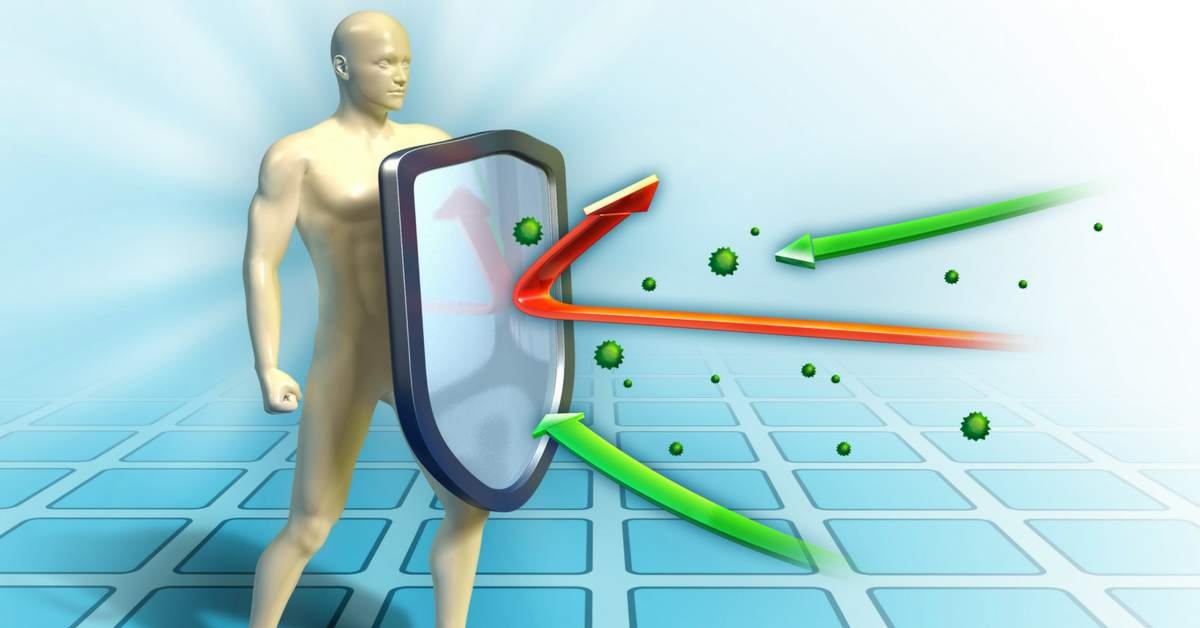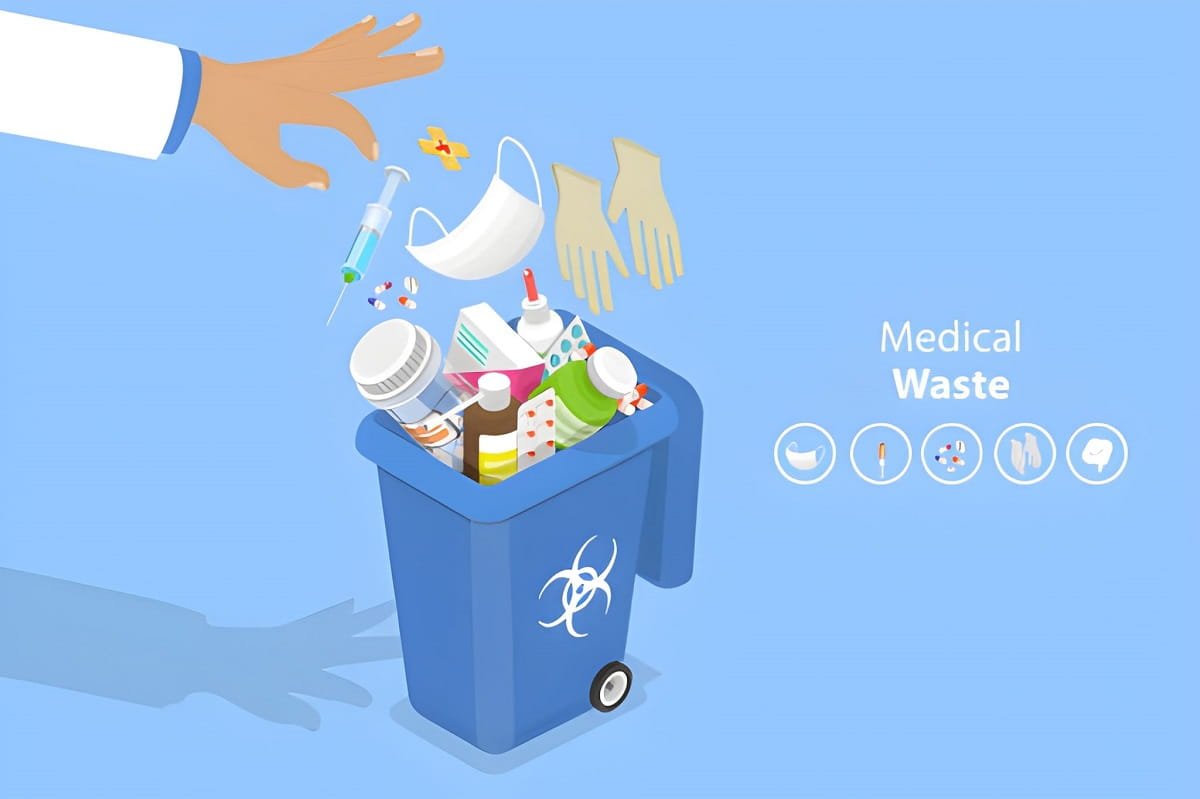Infections and the Immune System
The human Body is at constant war against disease-causing pathogens (germs), which can enter the Body through inhaled air, ingested food or water, broken skin, insect or animal bites, and sexual contact. Once on or inside the body, pathogens try to survive and reproduce. Most do not succeed. Many succumb to the Body’s internal heat or chemical environment, or to “friendly bacteria,” while others are expelled in mucous, urine, sweat, and feces. Those that survive do so by preying on healthy cells and tissue. Some pathogens can live only in certain types of tissue, while others can spread throughout the Body. The three-part process of invasion, growth, and the Body’s reaction constitutes infection. Though most infections are minor and short-lived, more and more are evolving into serious and even life-threatening diseases.
Once a pathogen invades the Body, our natural immune system counterattacks. Proteins called antibodies team up with special white blood cells to neutralize and destroy pathogens. The immune system is also able to remember contacts with a particular pathogen so that it can suppress repeat invasions. This cellular memory gives the body immunity against countless disease-causing pathogens.
Rapid immune system response stops or weakens most, but not all infections. Sometimes immune cells fail to recognize and attack pathogens, especially unfamiliar ones. At other times the Body’s counter-attack isn’t enough to stop the spread of harmful organisms in our Body.

How our Bodies Cope with Infections?
Although the immune system is exceedingly complex, some simple factors can weaken it. Higher than normal physical and emotional stress (including depression) are common underlying factors. Chronic or severe illnesses and surgery can leave the defense system exhausted and make convalescence (the gradual recovery of health and strength) particularly slow.
Poor and inadequate diet greatly interferes with the normal functioning of the immune system. Empty calories in highly processed foods and sweets not only fail to provide nourishment but are also harmful. Obesity, poor physical condition, and lack of activity are other contributing factors. Many medications, especially cortisone and antibiotics, affect the defense system adversely, particularly when they are taken for long periods. The immune system is also sensitive to toxic substances, including excessive alcohol and heavy metals. Individual constitution plays a role, and those with a weaker system must work harder to keep their immune system healthy.
The pathogens that cause infections are bacteria, fungi, animal parasites, and viruses. Bacteria, fungi, and parasites generally invade body tissue, steal nutrients from healthy cells, and release toxins. Some parasites – which can range in size from single-celled protozoa to visible worms – can kill healthy cells. Viruses are sub-life forms that survive only by invading living cells and multiplying inside them.
Understandably, the parts of the body that are most accessible to pathogens are those most vulnerable to infection. Pathogens readily infect the eyes, ears, mouth, genitals, and the skin itself. Skin infections are extremely common and can be caused by any pathogen. Ear infections are usually bacterial; eye infections may be viral or bacterial. Other pathogens can enter the body through broken skin and infect the bloodstream.
Any pathogen can invade the gastrointestinal tract, usually through contaminated food or water. Most cases of food poisoning are caused by bacteria, while giardiasis (an intestinal affliction) results from drinking water contaminated by parasitic protozoa. Inhaling or ingesting viruses causes most respiratory infections, including common colds, flu, and mild forms of pneumonia. Severe cases of pneumonia are usually bacterial, as are whooping cough and strep throat. Many lesser-known respiratory ailments are fungal infections.
The urinary system usually flushes out pathogens but is prone to infection when it is swollen, irritated, or obstructed. Ailments such as common bladder infections and serious kidney infections are usually bacterial.
Although many infections are confined to a body part or system, some infectious diseases spread throughout the body. Malaria, for example, is caused by a mosquito-borne parasite; tuberculosis is bacterial; AIDS, the deadliest infectious disease of recent times, is a viral disorder.
Increasing the Body’s Resistance to Infection
The blood’s white blood cells and antibodies are the primary fighting mechanism of the body against infection. However, it is important to remember that the blood is detoxified and cleansed by the liver, the urinary system assists the liver, and the urinary system and colon/intestines ultimately expel all of the undesirable and harmful toxins present in our bodies. Strengthening the Body’s resistance to disease and illness can be achieved by improving the functioning of not just the blood but all of the elimination organs.
Antioxidants help boost the immune system as they help hunt down and neutralize free radicals in the body. Although many antioxidants can be obtained from food sources such as sprouted grains, fresh fruits, and vegetables, it is very difficult to acquire adequate amounts of them from these sources alone. We can help minimize free radical damage by supplementing our diet with natural source key antioxidants, especially sprouts and greens, which exhibit incredibly strong natural antioxidant properties.
The colon/intestines, kidneys, skin, lungs and the liver all have a significant role to play in the Body’s immune system.* If these organs are congested with toxins, their effectiveness decreases, and their ability to aid the Body in the fight against infections is greatly diminished. Several plants and herbs are known to stimulate the detoxifying process of eliminating organs, keeping them in top shape when they are called upon to fight and expel unwanted viruses and bacteria from our bodies.











